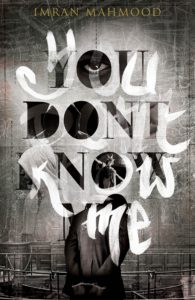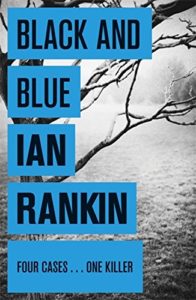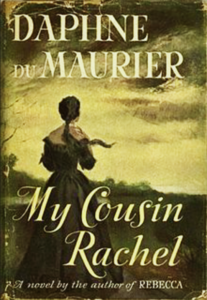Endings. Is there anything more divisive? More likely to have book clubs debating long into the night, books hurled across the room in wild frustration?
I may jest slightly, but let’s be honest, while the saying goes ‘Never judge a book by its cover’, books are far more likely to be judged by their ending.
The ambiguous ending is the most divisive of all. A crime against crime fiction, some say. Certainly a break in the contract between crime writer and crime reader that states the mystery must be solved by the time the last page is turned. Others argue that while ambiguous endings can work in short stories (where the reader is perhaps less emotionally invested?), rich, dense novels deserve rich, solid conclusions—questions answered, loose ends tied, justice served.
But do they? Or is there an alternative pay-off to be found in giving the reader the chance to decide their own interpretation of events? I think so.
So with that in mind, here are a few of my favorite open-ended novels, where a little, or a lot, is left to the reader’s imagination.
**NO SPOILERS** I won’t be revealing too much specific detail, simply whetting your appetite for these brilliant reads.

You Don’t Know Me, Imran Mahmood
What a premise! Just before closing speeches, a defendant fires his lawyer and decides to address the jury himself, detailing the events that led him to stand accused of murder, while addressing the eight key pieces of evidence against him. Written by a practicing criminal defence barrister, this striking and assured debut is a great example of the old adage ‘write what you know’. Utilising an unusual structure and narrative style that puts the onus on the reader to work out what’s really going on, Mahmood succeeds in making you feel like part of the jury. Reading this novel feels like a truly interactive experience.
The ending is as abrupt as it is ambiguous—essentially, the defense statement ends, the book ends. It’s then up to the reader to decide if the defendant was guilty or not. I admit, I felt an initial ‘Oh?’ when I turned the last page of this one, but then I thought about the book for weeks after, which I suspect is the whole point. Clever, original and thought-provoking.

In The Woods, Tana French
Oh, the arguments I’ve had over this ending! No list would be complete without Tana French’s sublime debut, focusing on the woodland murder of twelve-year-old Katy Devlin and the efforts of Detectives Rob Ryan and Cassie Maddox to bring her killer to justice. Of course, in the great procedural tradition, Rob has his own demons. Twenty-two years ago, an adolescent Rob went into those same woods with two friends who subsequently vanished, never to be seen again. Could the cases be linked? Does Rob know more than he’s letting on?
While it’s important to note that the central mystery is solved here, the beautifully hazy ending—the final punch, if you like—has been described as both ‘near poetry’ and ‘infuriating beyond words.’ In truth, both descriptions are completely valid.
Or at least that’s my opinion. You may well form a different one. And that’s the beauty of the ambiguous ending. There is no right or wrong.
A Dark Adapted Eye, Barbara Vine
Released in 1986, this was the first novel Ruth Rendell published under her pseudonym and it clearly marked a change in direction. There is no whodunnit here—from the outset we know who the killer is. What we don’t know is their motive, or even who they killed. This tale of jealousy and revenge is a fantastic early example of the psychological suspense novel that really hit its stride in the past decade. It’s also very much a detailed character study, rather than a classic plot-driven romp.
The interesting title refers to people seeing things as they really are, not through distorted perspective or the often rose-tinted glasses of history. Told in hindsight by a young woman persuaded to revisit her family’s murderous past, this is essentially a novel about memory and therefore it is ripe with ambiguities, not least the ending which requires readers to make up their own mind about a central question (and very likely read the entire novel again).

Black and Blue, Ian Rankin
Black and Blue, the eighth in Rankin’s Rebus series, is often considered his breakout novel. It is arguably his most ambitious too. This is a long and brilliantly complex read, with four separate plots spanning the length and breadth of Scotland—the main focus being the investigation into a copycat killer, Johnny Bible, which puts Rebus on the tail of the original Bible John (a real serial killer who terrorized Glasgow in the 1960s).
As Black and Blue forms part of a series, the open ending is probably a little less controversial. After all, police procedural fans expect—and love—to follow long-running threads and character arcs. However, the ending here isn’t just a cliff-hanger, designed to bring readers back for the next installment. It feels more meaningful than this. It’s a reminder that life isn’t always fair. Justice isn’t always served. And that stories don’t always need to be tied up with a nice neat bow.

My Cousin Rachel, Daphne du Maurier
This 1951 classic tells the story of Philip Ashley, who falls deeply for his deceased cousin’s wife, Rachel, while at the same time suspecting her of all manner of dastardly deeds—romantic affairs, financial improprieties, and most importantly, the poisoning of his beloved cousin, Ambrose.
It goes without saying that Du Maurier is a crime writing genius, but My Cousin Rachel takes the art of misdirection to the next level. Usually within a crime novel, the reader will be forming views and making educated guesses about how the plot is going to play out, however such is the skill with which Du Maurier manipulates the reader, you can never ever be sure of anything. Rachel’s motives and morality remain unclear until the very end.
Du Maurier presents two interpretations of Rachel. Is she a victim of Philip’s obsessive love or is she a calculating killer? By the end of the novel, Philip is still unable to decide. Maybe you will?
***



















